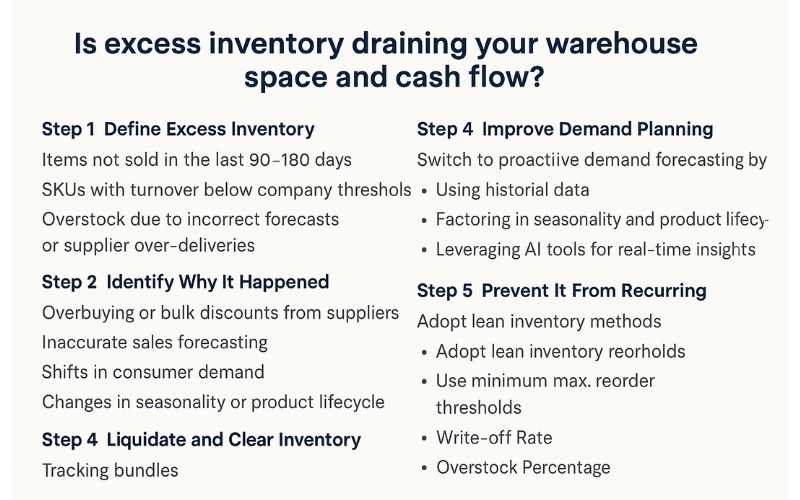Is excess inventory draining your warehouse space and cash flow? At Jay Hoehl Inc., reducing surplus stock is essential for staying competitive and responsive to market trends. This guide offers practical steps to cut inventory waste and improve performance.
Step 1: Define Excess Inventory
First, determine what qualifies as excess inventory. Some common benchmarks include:
- Items not sold in the last 90–180 days
- SKUs with turnover below company thresholds
- Overstock due to incorrect forecasts or supplier over-deliveries
Use cycle counting and inventory management software to validate actual stock levels.
Step 2: Identify Why It Happened
Common causes include:
- Overbuying or bulk discounts from suppliers
- Inaccurate sales forecasting
- Shifts in consumer demand
- Changes in seasonality or product lifecycle
Understanding the “why” is crucial before implementing fixes.
Step 3: Liquidate and Clear Inventory
- Discount pricing on excess items via flash sales, limited-time offers, or online marketplaces.
- Create bundles with fast-moving SKUs to make slow items more appealing.
- Sell to liquidators or donate items to nonprofits to recoup losses or gain tax benefits (source).
Step 4: Improve Demand Planning
Switch to proactive demand forecasting by:
- Using historical data to detect patterns
- Factoring in seasonality and product lifecycle
- Leveraging AI tools for real-time predictive analytics (source)
This improves reorder decisions and reduces the chance of overstock.
Step 5: Prevent It From Recurring
- Adopt lean inventory methods like Just-In-Time (JIT) or EOQ (Economic Order Quantity).
- Use minimum and maximum reorder thresholds.
- Conduct regular reviews of slow-moving items and stop reordering underperformers.
Step 6: Monitor KPIs
Track critical performance metrics such as:
- DIO (Days Inventory Outstanding)
- Inventory Turnover
- Write-off Rate
- Overstock Percentage
Monitoring these metrics monthly helps you stay agile and adjust procurement strategies when necessary.
Reducing excess inventory at Jay Hoehl Inc. doesn’t require drastic cuts—it requires smart planning and consistent execution. Start with accurate tracking, implement clearance tactics, and adopt forecasting tools to future-proof your supply chain.


